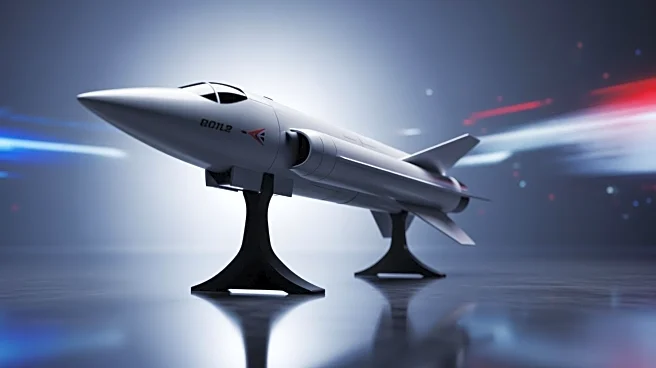What's Happening?
Russian President Vladimir Putin has announced the successful test of the Burevestnik nuclear-powered cruise missile. The test, which reportedly lasted 15 hours and covered 14,000 kilometers, comes amid
heightened tensions with the U.S. following the breakdown of a potential summit with President Trump. The missile is part of Russia's advanced weapons program and is claimed to have capabilities that evade missile defenses. The announcement coincides with increased Russian military activity in Ukraine and new U.S. sanctions on Russian oil companies.
Why It's Important?
The successful test of the Burevestnik missile underscores Russia's ongoing military advancements and its strategic focus on enhancing its defense capabilities. This development could escalate tensions between Russia and the U.S., particularly in the context of the stalled peace talks over Ukraine. The missile's capabilities pose a potential challenge to global security and could influence future arms control negotiations. The situation also highlights the complexities of U.S.-Russia relations and the broader implications for international security.
What's Next?
The U.S. and its allies may respond to Russia's missile test with diplomatic or military measures to counterbalance the perceived threat. Further sanctions or strategic military deployments could be considered. The international community will likely call for renewed arms control discussions to address the proliferation of advanced weapons. Monitoring Russia's military activities and diplomatic engagements will be crucial in assessing the potential for conflict escalation.










